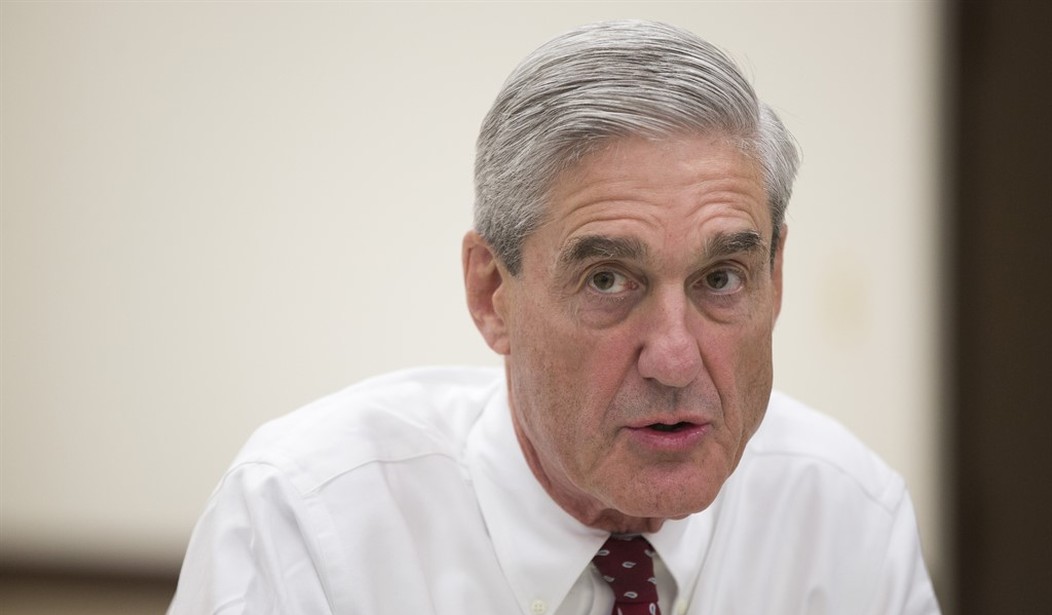We haven’t yet reached the point where big-name Trumpers are calling on him to pull the trapdoor on Mueller but we’re getting closer. At least one, Newt Gingrich, has already called for Mueller to be removed — by Congress, however, not the president.
“I think Congress should now intervene and they should abolish the independent counsel, because Comey makes so clear that it’s the poison fruit of a deliberate manipulation by the FBI director leaking to the New York Times, deliberately set up this particular situation. It’s very sick,” Gingrich told radio host John Catsimatidis.
“It’s very clear that Comey hates Trump,” he added.
Watch the first clip below and you’ll find Trump lawyer Jay Sekulow refusing to rule out the possibility of Trump firing Mueller himself, although he adds that he can’t imagine the subject arising. Why are even stalwart Trumpers like Newt and Sekulow sidestepping the idea of Trump terminating Mueller directly, despite what Sekulow says about the “unitary executive” understanding of Article II giving Trump the power to fire anyone in the executive branch? Simple. They know that the president firing the special counsel would be a Category Five political sh*tstorm, far beyond even the backlash Trump got for firing Comey. The “Saturday night massacre” comparisons to Nixon and Archibald Cox would be ubiquitous, especially if deputy AG Rod Rosenstein, who appointed Mueller, refused Trump’s order to fire him and resigned instead. It would be a spectacular political own-goal from a guy whom even Comey admits isn’t under investigation (or wasn’t as of May), deepening the suspicions that he’s trying to obstruct justice even though, as best anyone can tell, he’s in no legal danger himself.
Could Trump fire Mueller himself? Sort of, says Neal Katyal, who helped write the 1999 law that governs the special counsel:
Our Constitution gives the president the full prosecution power in Article II; accordingly, any federal prosecutor works ultimately for the president. That constitutional reality is not something we could write around with a regulation. Instead, we opted to try to focus accountability for any such activity. The regulations provide that Mueller can “be disciplined or removed from office only by the personal action of the Attorney General” (again, Rosenstein here, because Sessions is recused) and only for “good cause.” The president, therefore, would have to direct Rosenstein to fire Mueller — or, somewhat more extravagantly, Trump could order the special-counsel regulations repealed and then fire Mueller himself. Either of those actions was unthinkable to us back in 1999, for we understood that President Richard Nixon’s attempt in this regard ultimately led to his downfall. At the same time, after Trump’s firing of FBI Director James B. Comey this month, many things once thought beyond the realm of possibility look less so now.
If the president has “full prosecution power in Article II,” why would he be bound by the statute to direct the deputy AG to fire Mueller instead of doing it himself? That’s what Sekulow is after in the clip. He’s making the case that Trump could fire Mueller directly, whether Rosenstein agrees or not, with the caveat that he can’t imagine it happening. Imagine the political fallout if Trump did it, though. Rosenstein would probably quit in protest, as would some other career DOJ officials. There’d be a court battle that ends up in front of SCOTUS over whether the president has the power to terminate an investigation aimed at his own campaign staff for possibly colluding with an enemy power. Trump’s agenda in Congress would end up in a ditch as the GOP is forced to cope with the Mueller backlash day after day. It’d be egregious political malpractice, particularly given the fact that the president himself apparently faces no legal jeopardy from the probe. As Lindsey Graham says in the second clip below, Trump could become the first president to go down because he can’t stop inappropriately trying to halt an investigation that he’s not a subject of.
Newt elaborated on his theory of why Mueller must go in this column published a few days ago. Comey and Mueller are friends, he notes, which potentially presents a conflict of interest. If Congress lets Mueller stay on as special counsel, Comey would effectively be rewarded for having leaked the memo about his conversations with Trump, having triggered the need for a special counsel that resulted in a buddy and political ally being appointed to the position. Okay, but, uh, it wasn’t Comey who named Mueller special counsel. It was Rosenstein, Trump’s own handpicked deputy AG. Rosenstein could have chosen anyone but was sufficiently comfortable with the idea of Mueller as SC and Comey as a potential star witness that he went with the former FBI director. If Rosenstein thinks this arrangement is fine, why don’t Trumpers agree? And if they don’t, why not call for Rosenstein’s firing immediately?
Here’s Newt less than a month ago, by the way:
Robert Mueller is superb choice to be special counsel. His reputation is impeccable for honesty and integrity. Media should now calm down
— Newt Gingrich (@newtgingrich) May 18, 2017
If Trump really wants to short-circuit the Russia probe, I think he’ll do it via pardons instead of by firing Mueller. That would look shady as hell too, but it would avoid the political unpleasantness of firing a respected prosecutor. And anti-Trumpers would be kinda sorta placated by the fact that the pardons could be construed as an admission that Trump’s allies may have been guilty of wrongdoing after all.
Trump lawyer Jay Sekulow "not going to speculate" whether Trump would ever fire special counsel, but "can't imagine" issue would ever arise. pic.twitter.com/PzMuOgUC5y
— ABC News (@ABC) June 11, 2017
.@LindseyGrahamSC: “frustrating" Trump may be 1st president to “go down" because he can't stop inappropriately talking about investigation. pic.twitter.com/dROhiUZQbO
— Face The Nation (@FaceTheNation) June 11, 2017








Join the conversation as a VIP Member